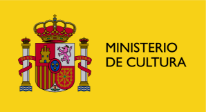The Opening Speech on Reading, year by year
In order to safeguard the memory of the Sant Jordi [St. George] Reading Festival, Barcelona Libraries and the City Council's Documentation and Access to Knowledge Service have put together the collection of opening speeches from 2004 to the present day. The purpose of this collection is to process it in documentary form, index it and publish it from the institutional BCNROC Open in a new window archive of the City Council itself.
José Saramago heads this festival and, although he was not the first writer to be chosen to give the opening speech, he was the first to have a video recorded. Almudena Grandes, Yasmina Reza and Claudio Magris, some of the many personalities invited to take part in this important Barcelona event, are also among the guests.
-
 Quino (2003)
Quino (2003)Quino (Mendoza, Argentina, 1932) is the creator of Mafalda, a character through which he made profound reflections and harsh criticisms of society both in Argentina and worldwide. His stories, which are still relevant today, were drawn between 1964 and 1973.
-
José Saramago (2004)
José Saramago (Azinhaga, 1922 - Tías, Lanzarote, 2010) was one of the most widely recognised Portuguese authors, by both critics and readers. Among other awards, he received the Camões Prize and the Nobel Prize for Literature.
-
Martí de Riquer (2005)
Martí de Riquer (1914-2013) received countless awards confirming him as one of the best Catalan Romance language specialists. The awards received by him include, among others, the National Prize for Catalan Literature, the Michel de Montaigne and Menéndez Pelayo prizes, the National Essay Prize, the Crítica Prize awarded by the Serra d’Or magazine, the Prince of Asturias Social Science Prize, the Lletra d′Or Prize and the National Award for Literature.
-
Antonio Tabucchi (2006)
Antonio Tabucchi (1943-2012) was considered the best Italian writer of his generation and he enjoyed great international prestige. He was awarded the most prestigious awards, such as the PEN Club Prize, the Campiello and Viareggio-Rèpaci awards in Italy; the Prix Médicis étranger, the European Literature Prize and the Méditerranée Prize in France, as well as the Nossak Prize in Germany.
-
Emili Teixidor (2007)
Emili Teixidor (1932-2012) was a writer, educator and journalist. He wrote mainly fiction for children and young people and published thirty such books, some of which became classics. He also wrote novels for adults, including his most acclaimed work, Pa Negre [Black Bread].
-
Alessandro Baricco (2008)
Alessandro Baricco (Turin, 1958) is the author of countless essays and articles and a large body of fiction. He directed the Pickwick literature programme, in which he encouraged Italians to rediscover the pleasure of reading, and in 1994 he founded a writing school that has been very successful under his direction.


























